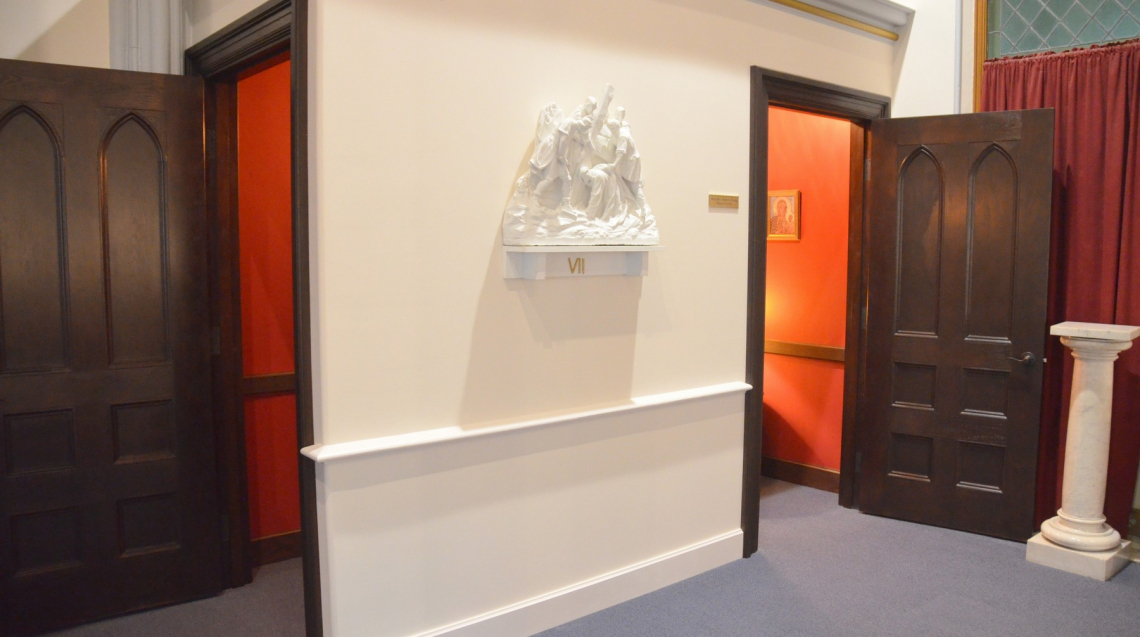The Sacraments - Reconciliation

The sacrament of reconciliation
One of the core messages of the New Testament is that in Christ, God offers forgiveness and reconciliation to the human race. Only God can forgive sin; therefore, this offer of reconciliation needs to come from God. Through the Passion, death, and resurrection of Christ, the walls of sin that had formerly separated us from God, other people, and our very selves have been broken down. We have been invited to join the family of God. Every new Catholic Christian shares in the victory of Christ and is incorporated into the family of God – the Church – by the sacraments of initiation we have considered in the last few articles.
Although the power of sin has thus been broken in us, we do not experience this victory as a sudden, complete event. We humans live in time and space. The victory of Christ over sin is our victory, but it grows and becomes complete in us over time. This means that, in the meantime, we are on a journey from slavery to sin to freedom as God’s children. It takes time for each of us to be re-formed according to the pattern of Christ. While the journey is still incomplete, we remain vulnerable to temptation and sin. And yes, we still sin. How do we address this ongoing reality of sin in our lives as Catholic Christians?
Christ has not only won reconciliation for us all but has entrusted to the Church this ministry of reconciliation. God has shared with the Church His own authority to forgive sin. The Church exercises this ministry, first of all, in its mission of evangelization, calling on all people to repent, be reconciled in Christ, and become members of His Church. However, the Church also exercises this ministry to its own members who remain vulnerable to temptation and sin. The Church offers a number of ways through which its members can find forgiveness and reconciliation. The ordinary way, however, through which Catholic Christians are reconciled to God and the Church after sin is through the sacrament of reconciliation.
Every sin – every evil thing we do to someone else, every good thing we are called upon to do but refuse to do – is a sin not only against the people we have directly wronged but a break of faith with God and with our Church family. True reconciliation must include all these. This is why in the sacrament of reconciliation, we go to a priest authorized by the Church to act in its name and to forgive sins in God’s name. We confess all our sins committed since our last visit to this sacrament. This confession is based on a still greater confession that Jesus Christ is Lord and that we intend to be obedient to Him by His grace. He determines the best way for us to find this reconciliation, not us.
The priest will usually ask us to do a certain penance – or offer satisfaction, as classical theology calls it. This penance is a recognition that the wrong we have done does not end with absolution. Everything we do – good or bad – creates ripples around us that continue to flow into the world long after the deed is done. This penance is our recognition of this and expresses our desire to somehow make amends for this extra wrong that our sins have pushed into the world. If we wonder how a penance we perform could have any effect on this evil, what we are doing in offering a penance is expressing our sincere desire that these ripples of evil be somehow repaired through expressing our willingness to do what we can. Ultimately, though, our penances open the door to God’s grace. It is God who will make our penances effective.
Finally, the priest offers us absolution. Through the ministry of the priest, authorized by the Church, Christ Himself has forgiven our sins and offered us healing from their effects.
How often should we approach this sacrament? Church law tells us that we need this sacrament whenever we are aware of having committed serious or mortal sin and highly recommends that we approach this sacrament for less serious or venial sins. Because sin remains an ongoing reality in our lives, the Church also calls on us to approach this sacrament at least once per year. Approaching this sacrament should always be preceded by a good and honest examination of conscience and an affirmation of our trust in the love of God, who desires to free us from our sins so that we may be more and more open to all the spiritual gifts He wills to lavish upon us.
Further Reading: Catechism of the Catholic Church,
nn. 1422-1498
Father Mark P. Nolette is a priest/hermit of the Diocese of Portland. He writes a regular blog, which can be found at www.theanchorite.net.










